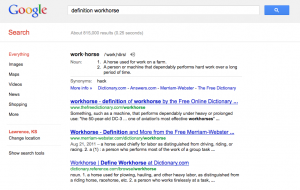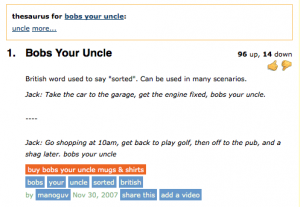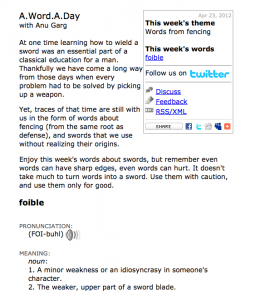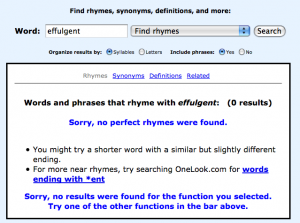My favorite resources online for writing are online dictionaries. Love them, love them, love them. Here I will review my favorites: Google dictionary, urban dictionary, A Word A Day, and rhymezone.
Everyone knows that google.com is a search engine. But it has many other features. For example, if one types a word into a Google search bar along with the search term “definition”, Google will return a dictionary entry for that word above the other search results. That is a feature I use every single day.

I use urbandictionary.com to check the meaning of slang, but this website is not as useful as it could be. It allows anonymous contributors to add words. This leads to a situation where search results usually have multiple entries by different authors for each phrase, some of which are serious and many are jokes. Urban Dictionary is a good example of how allowing wide participation can drive down the value of an online resource. Another criticism I have of this site is that every entry has an option to buy a product attached to it, so why have a dictionary at all if the site is just to sell customized mugs? The main value of this site is that I can always find the phrase I am looking for, even if it is in no other dictionaries.
The antithesis of that same concept is A Word A Day available at wordsmith.org/awad. This site is a wonderful resource and an example of how narrow curation by a reputable editor increases the quality of an online dictionary. A Word A Day is not as easily searchable as other online dictionaries, but it is written with a high level of accuracy. As one might expect from the name of the site, there is a word every weekday. Every week has a unifying theme. In addition to the definition of the word of the day, there is etymology and thoughts from the founder, Anu Garg, about the word of the day.
Rhymezone.com is my favorite online dictionary because in addition to searching for definitions, antonyms and synonyms one can search for rhymes as well as references in Shakespeare! The look of the site is kind of old school, but it functions.
What about you? What online dictionary do you use?



Leave a Reply